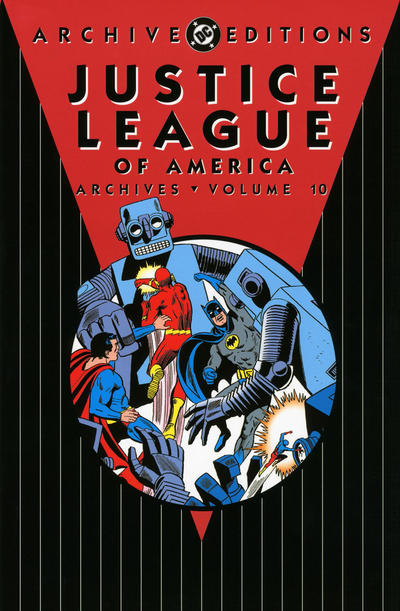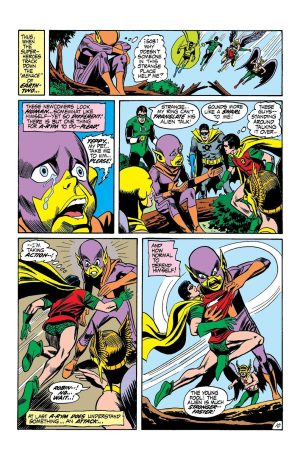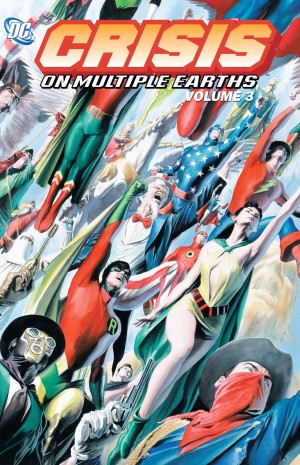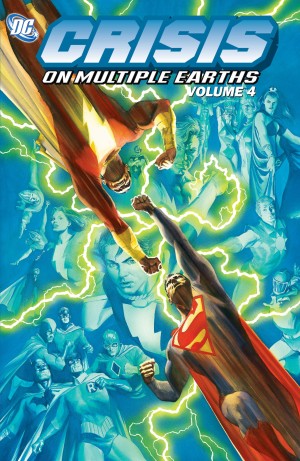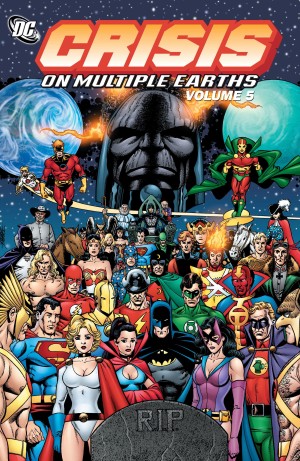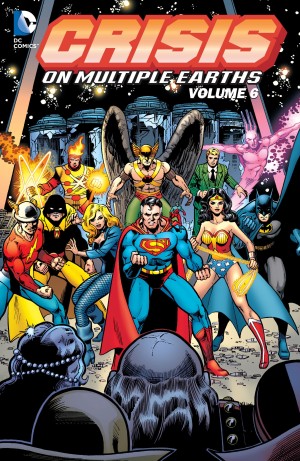Review by Frank Plowright
Back in the day those who still enjoyed the outdated gimmick based plots featuring no personalities surely hated Denny O’Neil’s Justice League and its bickering heroes constantly preaching about the woes of humanity. The eight year gap in publication separating this Archive collection from Volume 9 indicates no great appeal to 21st century readers either.
If the stories reprinted in Volume 9 weren’t greatly entertaining, at least there were a few interesting ideas behind them. Based on O’Neil’s three contributions here, he’d completely given up the ghost by summer 1970. Perhaps acknowledging the lack of fun, the first introduces the Galactic Jest Master, the biggest jest being that there’s not a joke in him, and that’s followed by two chapters of an almost incomprehensible team-up with the Justice Society. That supplies ponderous cosmic meddlers, pompous dialogue and O’Neil re-running the plot from an earlier JLA/JSA team-up, only this time it’s Red Tornado and not the Spectre separating two worlds, except then it is the Spectre, just like before.
A single story by Robert Kanigher is little better, including the convenience of Black Canary suddenly being able to hear the thoughts of the woman standing next to her, and a preposterous romance scene with Batman.
O’Neil’s finale is a collaboration with his successor Mike Friedrich on an overwrought tale about food shortage, and Friedrich initially continues in much the same vein as O’Neil. He has a better concept of the JLA’s strengths, pitting them against variations of the Avengers, having Earth’s original inhabitants returning from space and the decent idea of a an alien boy and the pet with whom he has a symbiotic relationship being separated on different Earths. In that final case, though, the execution fails to match the idea. However, there’s also the poor Harlan Ellison pastiche of an author infatuated with the Black Canary and its unbelievably self-indulgent ending, and yet another sermon, this time concerning undersea pollution.
Readers at the time, though were surely seduced into purchase by a succession of great Neal Adams covers. Inside they’d have found Dick Dillin, in no sense as good as Adams, but here still putting effort into interesting layouts. He’s also far better at transmitting emotions than he would be in later stories. The tragedy of the alien boy requires the upset to be conveyed, and Dillin supplies it, along with the quirky touch of the alien child being slightly larger than the average human.
However, while marginally better than the content of Volume 9, this selection still showcases dull days for the Justice League.
This is the final Justice League Archive. DC would pick up the continuity with a larger format and even more expensive packaging in Justice League: The Bronze Age Omnibus. Everything here is included in the first volume. It’s also found in black and white spread over Showcase Presents Justice League of America Volume Four and Volume Five.
